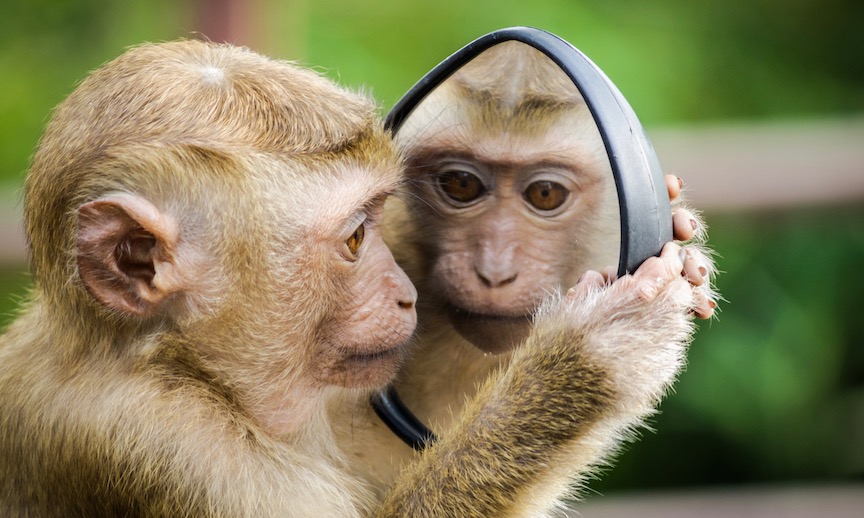SMARTY-PANTS
Sometimes I don’t feel very smart. I bump up against situations that I have no idea whatsoever how to fix. I doubt that I know how to do what I’m trying to do. I wonder whether I’ve got what it takes, the necessary qualifications or capacities, and if I’m about to make a fool of myself by even trying. Oh, god, I might even make things worse…
It’s scary when this happens, because I really, really like thinking of myself as smart. Having smarts give me confidence. Generally, I’ve counted on myself either to already have the knowledge and understanding that I need or to be able to get it when I need it. For most of my life, I’ve been told that I’m a sharp tool, a bright bulb, and I’ve usually assumed that this is true.
Lately, though… smarts have felt slippery. So I’ve been mulling over the whole idea from a couple of different angles.
First, I’m looking at what I even mean by “smart.” The ways I’ve relied upon it as a self-concept, and why it might be feeling a little shaky for me now. Second, I’m considering the idea of Divine Mind or Divine Intelligence, names we often use for Spirit, which in theory is ever-present and available to all of us. And if that’s true, then where the heck is It when I’m feeling befuddled like this?
I read a short piece by Seth Godin last week in which he talked about the fact that the meaning of “smart” has changed. It no longer describes access to information, or the ability to memorize and retain knowledge, because in 2022 our phones and computers do all that for us. Now, “smart” means things like: situational awareness, clarity of goals, good taste, empathy, and the ability to make decisions. “The good news is that smart is a choice and smart is a skill,” he writes.
That is, indeed, good news — we can all practice being smart.
The trickier news, it seems, is that not everyone does. Not everyone practices these new smart skills. Instead, a lot of us are inclined to default to the outmoded definition that equates smarts with being right. And because it’s easy to assume that we’ve got the whole world of knowledge in our pockets, we fail to notice that what we’ve mostly got is partial, editorial, fear-stoking confirmation biases. When we assume that we’ve got factual certainty in our pockets, we likely fail to notice all the ways that actually we’re pocketing prejudice and the status quo.
I don’t want to have to give up completely my self-identification as a smart guy — someone academically gifted, intellectual, a thinker. I like considering myself with those qualities. But I’m starting to reckon with the ways in which I may have used this self-concept habitually as a differentiator, a comparison, an elevation and separation. Ick. While there’s nothing wrong with feeling “special,” it can be pretty ugly if it means losing sight of others’ specialness and specialties. There’s nothing bad about recognizing ourselves as “gifted,” unless that means forgetting that everyone else is uniquely gifted, too.
So… then there’s the matter of Divine Intelligence, Infinite Mind, the Wisdom of the Ever-Loving Everything that is supposedly pouring through us and into our lives all the time… How’s that work? It ain’t always obvious, that’s for sure.
Maybe it boils down similarly to how we hold our personal “smarts.” If we equate Intelligence with correct knowledge and specific answers, and we think of Wisdom as something like the certainty of being right, then we’re always going to be inclined to separate and divide ourselves from each other according to whether or not we agree.
If, on the other hand, we think of Divine Mind as something truly infinite in its variety and content, and to which we all have boundless access, then this can — if we let it — draw us closer together. It can bring us closer to each other and, ultimately, to everything.
It does mean engaging with things and ideas and people with whom we disagree. It means discomfort, sometimes, and even conflict. It means being challenged, getting stretched and grown beyond our ideas of who we thought we were and what we thought were our capacities.
Still, it sounds to me like a great way to sport our smarty-pants: openness to new ideas, a greater willingness to wonder and question, the ability to be with the unknown, and a receptivity to people and perspectives different from our own.
I’m not talking about a post-factual reality of utter subjectivity in which everyone gets to bunker down in their beliefs. On the contrary, it seems to me that this is the way to help us out of the bunker mentality into a collaborative, shared experience of reality again.
I can’t wait to be with you this Sunday, June 19, as we honor Father’s Day and celebrate the magnificent gifts of our emotional, relational, social, and creative Intelligence. See you soon, all you smarty-pants. XO, Drew
©2022 Drew Groves




